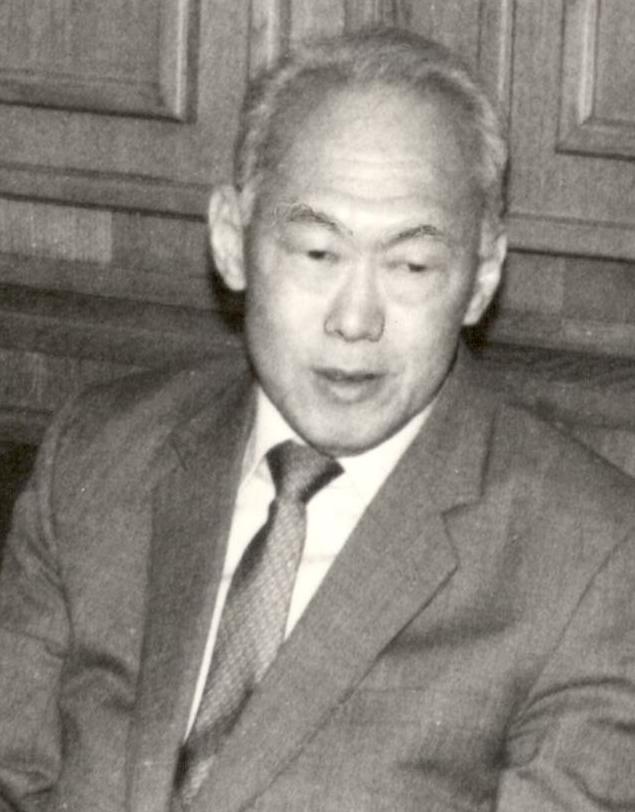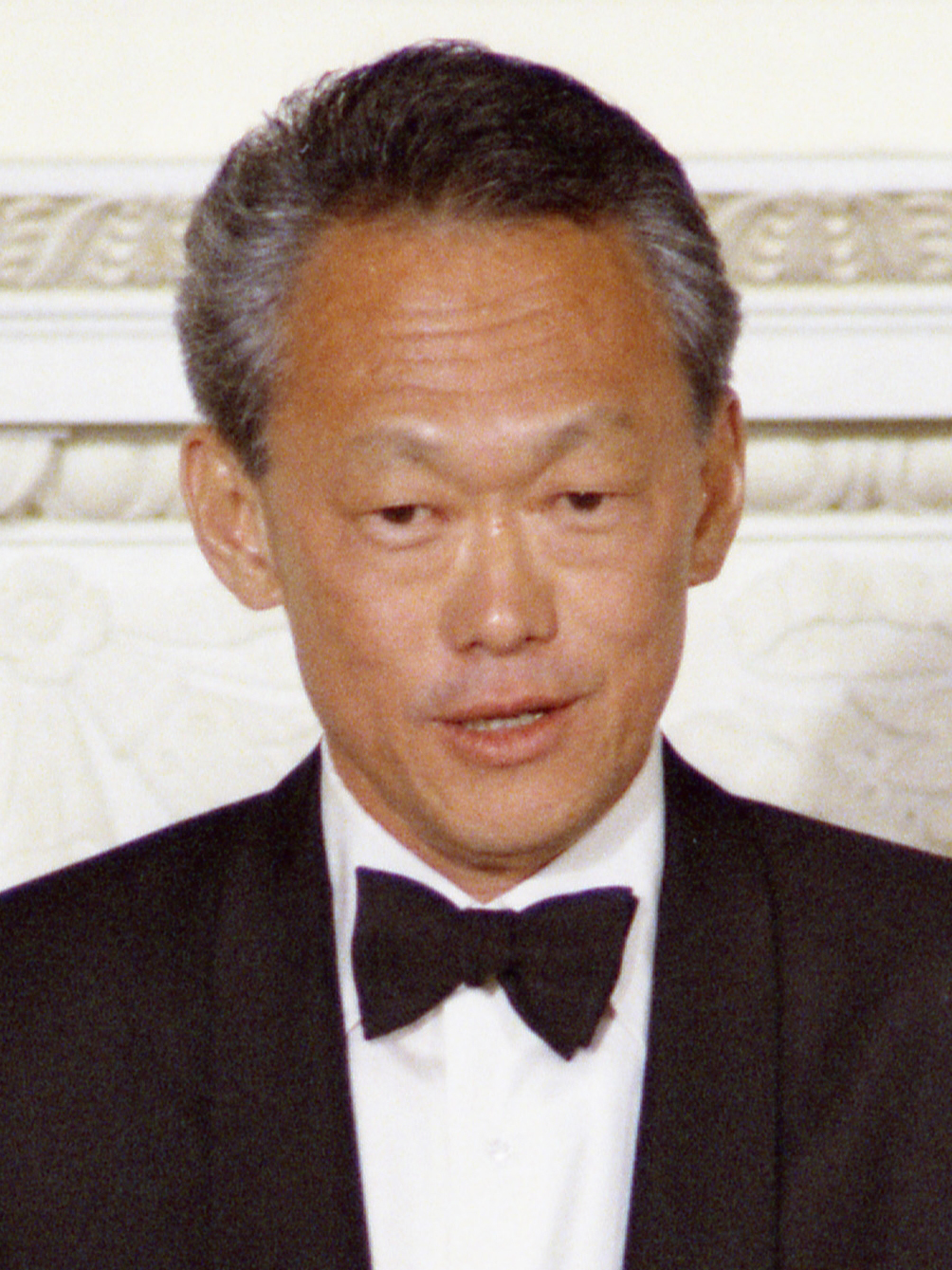|
Cairnhill Single Member Constituency
Cairnhill Single Member Constituency (SMC) was a former single member constituency in Singapore. It used to exist from 1955 to 1988 as Cairnhill Constituency and was renamed as Cairnhill Single Member Constituency (SMC) as part of Singapore's political reforms. The SMC was merged into Kampong Glam Group Representation Constituency (GRC) in 1991. Lim Kim San was the elected Member of Parliament from 1959 to 1980 and then Wong Kwei Cheong from 1980 to 1991. History The constituency was formed during the 1955 Singaporean general election, encompassing Balestier, Rochore and Tanglin wards. During the 1959 Singaporean general election General elections were held in Singapore on 30 May 1959. They were held under the new constitution and were the first in which all 51 seats in the Legislative Assembly were filled by election. This was the first election victory for the People ..., part of the constituency was split to form River Valley Constituency. In 1988, the constitu ... [...More Info...] [...Related Items...] OR: [Wikipedia] [Google] [Baidu] |
Parliament Of Singapore
The Parliament of Singapore is the unicameral legislature of the Republic of Singapore, which governs the country alongside the president of Singapore. Largely based upon the Westminster system, the Parliament is made up of Members of Parliament (MPs) who are elected, as well as Non-constituency Members of Parliament (NCMPs) and Nominated Members of Parliament (NMPs) who are appointed. Following the 2020 general election, 93 (currently 92) MPs and two NCMPs were elected to the 14th Parliament. Nine NMPs will usually be appointed by the president. The speaker of Parliament has overall charge of the administration of Parliament and its secretariat, and presides over parliamentary sittings. The leader of the house is an MP appointed by the prime minister to arrange government business and the legislative programme of Parliament, while the leader of the opposition is the MP who leads the largest political party not in the government. Some of Parliament's work is carried out b ... [...More Info...] [...Related Items...] OR: [Wikipedia] [Google] [Baidu] |
Liberal Socialist Party (Singapore)
The Liberal Socialist Party (abbreviation: LSP) was a political party in the Singapore. It was formed in the 1950s from the merger of the Singapore Progressive Party (SPP) and the Democratic Party (DP), the latter not to be confused with the Singapore Democratic Party (SDP). The merger occurred in order to consolidate their relatively compatible and similar aims, that of gradual and nonradical progressivism implementing liberal policies. The merger occurred because of the weak performance of both parties in the Singapore general election of 1955, but members started to merge with the Singapore People's Alliance (SPA) before the following general election of 1959. The LSP contested the general election of 1959 against the SPA, had a significant showing, gaining more than 8% of the popular vote and contesting 32 seats, but failed to win any of them. Following the election most of the LSP merged with the SPA and the rump of the LSP died out as the now ruling People's Action Part ... [...More Info...] [...Related Items...] OR: [Wikipedia] [Google] [Baidu] |
Tan Chye Cheng
Tan Chye Cheng (; 1911 – 6 March 1991), also known as C. C. Tan, was a Singaporean lawyer and politician. Biography Born in Singapore, Tan was the only child of Tan Guan Chua, a member of the Chinese Advisory Board and the Singapore Chinese Chamber of Commerce committee.Portrait of Mr. C.C. Tan, Member of Singapore Legislative Council BooksSGLeo Suryadinata (2012) Southeast Asian Personalities of Chinese Descent: A Biographical Dictionary, Volume I & II ', Institute of Southeast Asian Studies, p1065 He was e ... [...More Info...] [...Related Items...] OR: [Wikipedia] [Google] [Baidu] |
David Saul Marshall
David Saul Marshall (12 March 1908 – 12 December 1995), born David Saul Mashal, was a Singaporean lawyer and politician who served as Chief Minister of Singapore from 1955 until his resignation in 1956, after his delegation to London regarding the negotiation for complete home rule and eventual independence of Singapore failed. However, Marshall was instrumental in forging the idea as well as in subsequent negotiations that led to the eventual self-governance of Singapore from the United Kingdom. Marshall was a leftist nationalist who aspired self-determination of the former British Crown colony—having founded the Labour Front and the Workers' Party. Marshall would renounce partisan politics and become an independent politician from 1963 onward. Singapore would eventually gain its independence in 1965. In 1978, Marshall became a diplomat and was Singapore's Ambassador to various countries, including France, Portugal, Spain, and Switzerland. During this time, Marshall defend ... [...More Info...] [...Related Items...] OR: [Wikipedia] [Google] [Baidu] |
Elections Department Singapore
The Elections Department of Singapore (ELD), known exonymously as the Elections Department, is a department under the Prime Minister's Office (PMO) of the Government of Singapore which are responsible for overseeing the procedure for elections in Singapore, including parliamentary elections, presidential elections and referendums. First established in 1947, it sees that elections are fairly carried out and has a supervisory role to safeguard against electoral fraud. It has the power to create constituencies and redistrict them, with the justification of preventing malapportionment. History The elections department was established under the Chief Secretary's Office in 1947 when Singapore was a British crown colony. After independence in 1965, the department was subsequently placed under the Ministry of Home Affairs, followed by the Deputy Prime Minister's Office, and is currently under the Prime Minister's Office. In 2003, the Department was expanded to include the Regis ... [...More Info...] [...Related Items...] OR: [Wikipedia] [Google] [Baidu] |
1988 Singaporean General Election
General elections were held in Singapore on 3 September 1988. President of Singapore, President Wee Kim Wee dissolved parliament on 17 August 1988 on the advice of Prime Minister of Singapore, Prime Minister Lee Kuan Yew. The result was a victory for the People's Action Party, which won 80 of the 81 seats. Though the total eligible voter population surpassed 1 million in 1976 Singaporean general election, 1976, this was the first time that the total eligible voter population in contested seats and voter turnout exceeded 1 million. This feat will not be repeated again until 2006 Singaporean general election, 2006 or 18 years later. Overview Group Representation Constituencies were introduced in this general election to ensure ethnic minority representation in Parliament, starting with three member constituencies. This was the last time Prime Minister Lee Kuan Yew led the PAP in an election and another two stalwarts, former Deputy Prime Minister Dr Toh Chin Chye and Senio ... [...More Info...] [...Related Items...] OR: [Wikipedia] [Google] [Baidu] |
1984 Singaporean General Election
General elections were held in Singapore on 22 December 1984. President of Singapore, President Devan Nair dissolved parliament on 4 December 1984 on the advice of Prime Minister of Singapore, Prime Minister Lee Kuan Yew. The result was a victory for the People's Action Party, which won 77 of the 79 seats, marking the first time since 1963 Singaporean general election, 1963 that at least one opposition candidate was elected to parliament in a general election, although the first presence of an opposition MP was in the 1981 Anson by-election, 1981. Background In his 1983 National Day Rally speech, Prime Minister Lee Kuan Yew lamented that declining birth rates and large number of graduate women remaining single or not marrying their intellectual equal could see Singapore's talent pool shrink. The PAP government then proceeded to launch the "Population control in Singapore, Graduate Mothers' Scheme" to entice graduate women with incentives to get married and grant graduate mothers p ... [...More Info...] [...Related Items...] OR: [Wikipedia] [Google] [Baidu] |
1980 Singaporean General Election
General elections were held in Singapore on 23 December 1980. The result was a victory for the People's Action Party, which won all 75 seats, the last of four consecutive elections in which they repeated the feat. Voter turnout was 95.5%, although this figure represents the turnout in the 38 constituencies to be contested, with PAP candidates earning walkovers in the other 37. 685,141 voters out of the total electorate of 1,290,426 went to vote on the elections. Background Prior to this election, a series of by-elections were held in 1977 and 1979 after two and seven MPs, respectively, were vacated; however, the ruling PAP won every seat, allowing nine new candidates, which include Devan Nair and Tony Tan (both would later go on to become Presidents of Singapore) to enter Parliament. During the election, PAP also introduced a few other prominent members, such as future ministers Lee Yock Suan and S. Jayakumar, as well as a backbencher (and later Progress Singapore Party secretar ... [...More Info...] [...Related Items...] OR: [Wikipedia] [Google] [Baidu] |
1976 Singaporean General Election
General elections were held in Singapore on 23 December 1976. The result was a victory for the People's Action Party, which won all 69 seats, the third of four consecutive elections in which they repeated the feat. Voter turnout was 95.1%, out of 857,297 voters eligible (from the total electorate of 1,095,817) from the 53 contested constituencies.Parliamentary general election 1976 Singapore Elections Electoral system The 69 members of were elected from 69 single-member constitu ...[...More Info...] [...Related Items...] OR: [Wikipedia] [Google] [Baidu] |
1972 Singaporean General Election
General elections were held in Singapore on 2 September 1972. The result was a fourth victory for the People's Action Party, which won all 65 seats, the second of four consecutive elections in which they repeated the feat. Voter turnout was 93.5% in the 57 constituencies (which represented 812,926 voters) that were contested, with PAP candidates elected unopposed in the other eight, which represents 95,456 voters. Singapore Elections Electoral system The 65 members of were elected in[...More Info...] [...Related Items...] OR: [Wikipedia] [Google] [Baidu] |
1968 Singaporean General Election
General elections were held in Singapore on 13 April 1968, its first as a sovereign city-state.Dieter Nohlen, Florian Grotz & Christof Hartmann (2001) ''Elections in Asia: A data handbook, Volume II'', p254 Background Following the resignations of eleven MPs from Barisan Sosialis (BS, Socialist Front) and two other BS MPs leaving Singapore in protest against independence, five by-elections were held within three years but PAP were successful in winning all the seats, resulting in a monopoly. Campaign BS boycotted the elections on the grounds that Singapore's independence was "phoney" and several opposition parties heeded its call. The leaders of Pertubuhan Kebangsaan Melayu Singapura (formerly the local branch of the UMNO), Ahmad Haji Taff, and the Singapore Chinese Party (formerly the local branch of the MCA), Chng Boon Eng, turned up but did not file their nominations. Three precedents were made in this election: the fewest seats (seven) contested in a general election, and t ... [...More Info...] [...Related Items...] OR: [Wikipedia] [Google] [Baidu] |
People's Action Party
The People's Action Party (abbreviation: PAP) is a major conservative centre-right political party in Singapore and is one of the three contemporary political parties represented in Parliament, alongside the opposition Workers' Party (WP) and Progress Singapore Party (PSP). Initially founded as a traditional centre-left party in 1954, the leftist faction was soon expelled from the party in 1961 by Lee Kuan Yew in the midst of Singapore's merger with Malaysia, desiring to move the party's ideology towards the centre after its first electoral victory in 1959. Beginning in the 1960s, the party henceforth began to move towards the centre-right. Following the 1965 agreement which led to Singapore's expulsion from the Malaysian federation, almost the entire opposition except for the WP boycotted the following elections in 1968 in response to their initial incredulity towards independence, thereafter allowing the PAP the opportunity to exercise exclusivity over its governance of n ... [...More Info...] [...Related Items...] OR: [Wikipedia] [Google] [Baidu] |



.jpg)